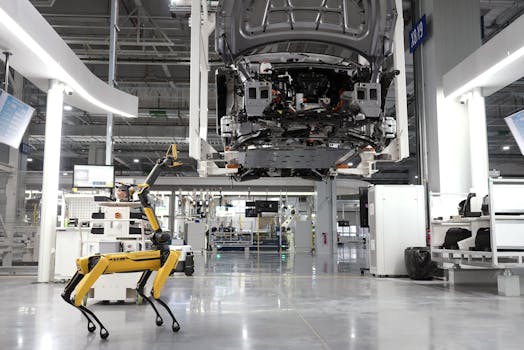The AI Revolution: How Smart Machines Are Changing Our World
Ever wondered how Netflix seems to know exactly what you want to watch next? Or how your smartphone can understand what you’re saying even when you’re shouting over the noise of a busy street? Welcome to the world of artificial intelligence (AI), where machines are learning to think, adapt, and even create. It’s not just about robots taking over the world anymore—AI is already here, and it’s changing our lives in ways we never imagined.
The Basics of AI
So, what exactly is AI? At its core, AI is about creating machines that can perform tasks that typically require human intelligence. We’re talking things like learning, reasoning, problem-solving, perception, and language understanding.
There are different types of AI, from simple rule-based systems to complex machine learning algorithms that can learn from data. And then there’s deep learning, a subset of machine learning that uses neural networks inspired by the human brain. It’s like teaching a computer to think and learn just like we do.
AI in Everyday Life
You might be surprised to know that you’re probably using AI every day. It’s in your smartphone, helping you with voice assistants like Siri or Google Assistant. It’s in your email, filtering out spam and suggesting responses. And it’s in your social media feeds, deciding what content to show you based on your interests.
AI-Powered Recommendations
- Netflix uses AI to suggest shows and movies based on your viewing history.
- Spotify creates personalized playlists with songs it thinks you’ll like.
- Amazon recommends products based on your browsing and purchase history.
The AI industry is booming, with companies big and small investing in this technology. From startups to tech giants like Google and Microsoft, everyone wants a piece of the AI pie. And it’s not just about making money—AI has the potential to solve some of the world’s biggest problems.
AI for Good
So here’s the thing, aI isn’t just about convenience and entertainment. It’s also being used to make a real difference in the world. For example, AI can help doctors diagnose diseases more accurately by analyzing medical images. It can predict natural disasters like floods and wildfires, giving people time to evacuate.
AI Fighting Climate Change
- Climate AI uses machine learning to predict weather patterns and help farmers make better decisions.
- DeepMind, a company owned by Google, has used AI to reduce the energy used for cooling its data centers by 40%.
I’m so excited about, and let’s not forget about AI’s potential in education. Personalized learning platforms use AI to adapt to a student’s learning pace and style, making education more accessible and effective.
The Future of AI
So here’s the thing, so, what does the future hold for AI? Well, it’s hard to say exactly. But one thing is for sure—AI is here to stay. And as it continues to evolve, it will change our world in ways we can’t even imagine yet.
Ethical Considerations
As AI becomes more integrated into our lives, it’s crucial to consider the ethical implications. We need to ensure that AI is used responsibly and fairly, without perpetuating biases or invading privacy.
Organizations like the Partnership on AI are working to promote best practices in AI development and use. They’re bringing together companies, academics, and non-profits to tackle these challenges head-on.
The Road Ahead
AI is an exciting field with endless possibilities. Whether you’re a tech enthusiast, a concerned citizen, or just someone curious about the future, there’s always more to learn and explore.
Look, so, keep your eyes open and your mind curious. The world of AI is changing fast, and it’s up to us to shape that change in a way that benefits everyone.
The Final Frontier
AI isn’t just about making our lives easier or more convenient. It’s about pushing the boundaries of what’s possible, exploring new frontiers, and creating a better future for all. So, let’s embrace this revolution with open arms and see where it takes us.
Honestly, after all, the future is not something that happens to us — it’s something we create. And with AI, we have the tools to cerate a future limited only by our imagination.
